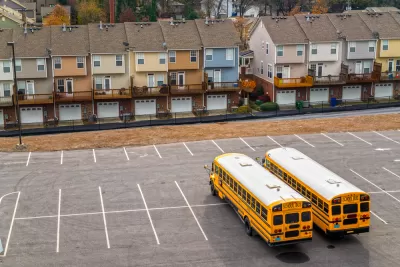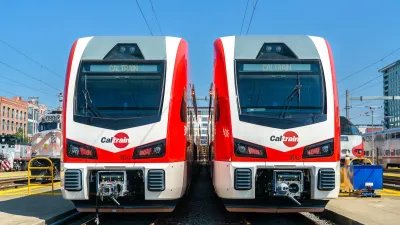The American Left, according to Ezra Klein, is starting to acknowledge the role of supply-side thinking in public policy.

Despite its association with the right wing, writes Ezra Klein in an op-ed, "you can see something new and overdue emerging in American politics: supply-side progressivism." Klein goes on to explain "the driving theory of most of the progressive policy agenda, most of the time: give people money or a moneylike voucher they can use to buy something they need or even just want." This, he argues, often makes progressives "uninterested in the creation of the goods and services they want everyone to have. This creates a problem and misses an opportunity" that leads to scarcity and rationing. "You can see the poisoned fruit of those mistakes in higher education and housing," for example.
This philosophy, according to Klein, "also misses the opportunity to pull the technologies of the future progressives want into the present they inhabit. That requires a movement that takes innovation as seriously as it takes affordability." Klein points to "Aaron Bastani’s 'Fully Automated Luxury Communism,' a leftist tract that puts the technologies in development right now — artificial intelligence, renewable energy, asteroid mining, plant- and cell-based meats, and genetic editing — at the center of a postwork, postscarcity vision." But Bastani warns that 'the same technologies could become accelerators of inequality and want if they’re not embedded in thoughtful policies and institutions."
A better world in which we can solve problems like climate change "requires inventions and advances that render old problems obsolete and new possibilities manifold," writes Klein. But he sees hope in recent developments that acknowledge the importance of supply-side thinking. "Much of the spending in the Biden agenda is dedicated to increasing the supply of renewable energy and advanced batteries while building the supply of carbon-neutral transportation options. Democrats have realized that markets alone will not solve the climate crisis."
FULL STORY: The Economic Mistake the Left Is Finally Confronting

Study: Maui’s Plan to Convert Vacation Rentals to Long-Term Housing Could Cause Nearly $1 Billion Economic Loss
The plan would reduce visitor accommodation by 25,% resulting in 1,900 jobs lost.

North Texas Transit Leaders Tout Benefits of TOD for Growing Region
At a summit focused on transit-oriented development, policymakers discussed how North Texas’ expanded light rail system can serve as a tool for economic growth.

Why Should We Subsidize Public Transportation?
Many public transit agencies face financial stress due to rising costs, declining fare revenue, and declining subsidies. Transit advocates must provide a strong business case for increasing public transit funding.

How to Make US Trains Faster
Changes to boarding platforms and a switch to electric trains could improve U.S. passenger rail service without the added cost of high-speed rail.

Columbia’s Revitalized ‘Loop’ Is a Hub for Local Entrepreneurs
A focus on small businesses is helping a commercial corridor in Columbia, Missouri thrive.

Invasive Insect Threatens Minnesota’s Ash Forests
The Emerald Ash Borer is a rapidly spreading invasive pest threatening Minnesota’s ash trees, and homeowners are encouraged to plant diverse replacement species, avoid moving ash firewood, and monitor for signs of infestation.
Urban Design for Planners 1: Software Tools
This six-course series explores essential urban design concepts using open source software and equips planners with the tools they need to participate fully in the urban design process.
Planning for Universal Design
Learn the tools for implementing Universal Design in planning regulations.
Ascent Environmental
Borough of Carlisle
Institute for Housing and Urban Development Studies (IHS)
City of Grandview
Harvard GSD Executive Education
Toledo-Lucas County Plan Commissions
Salt Lake City
NYU Wagner Graduate School of Public Service





























